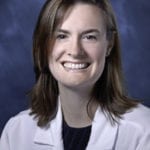End of GOG Marks a New Beginning | B.J. Rimel, MD
Last month I joined hundreds of gynecologic oncologists in making our yearly pilgrimage to San Diego, CA. For the past four decades, members of our subspecialty would assemble for the Gynecologic Oncology Group (GOG) semi-annual meeting. The GOG has conducted the vast majority clinical trials in gynecologic cancer and the group is responsible for most of the treatment advances in these diseases over the last 45 years. Now, due to major changes in the way that the National Institutes of Health (NIH) funds clinical trials, we are part of a larger group. We have joined up with the National Surgical Adjuvant Breast and Bowel Project (NSABP) and the Radiation Therapy Oncology Group (RTOG) to create…wait for it…NRG Oncology.

As I was preparing to leave to attend the meeting, my clinic nurse stopped me in the office with a pile of paperwork to finish before the trip. She paused to ask me, “Why exactly do you go to these meetings?”
It’s a good question. The meetings start at 8:00 a.m. and go nonstop until at least 6:00 p.m. Then there are the after-meeting meetings that start at 6:30 p.m. and go until 9:00 p.m. It’s not a vacation. I don’t leave the conference space until after dark. I miss my family. Sometimes, I miss lunch.
I go because this is the place where gynecologic oncologists go to develop and study ideas that change the way we treat cancer. Sometimes, this means a finding a regimen that provides more time off treatment, or improved survival of a deadly disease by 30 percent, or discovery of a novel drug that might keep that cancer from coming back. This is also a place where experts in rare gynecologic tumors give crystalline lectures describing what we know and don’t know about these cancers. Since most of us will see only a handful of these cancers in our whole career it is imperative to keep tabs on how best to treat.
I go because I want to bring my voice and concepts to the conversation. I go to collaborate with other researchers. I go because I want to hear what others are doing when faced with similar situations. I go to commiserate with other gynecologic oncologists about losing sleep, losing perspective and losing patients to cancer.
So I came to the last meeting of the old GOG and the beginning of the new NRG. The crowd is different. There are more new faces. There are lots of new ideas about how we will prioritize gynecologic cancer in an era of little federal funding. But the ethos is strangely similar. We are all here to find a new way to end cancer as a threat to women.